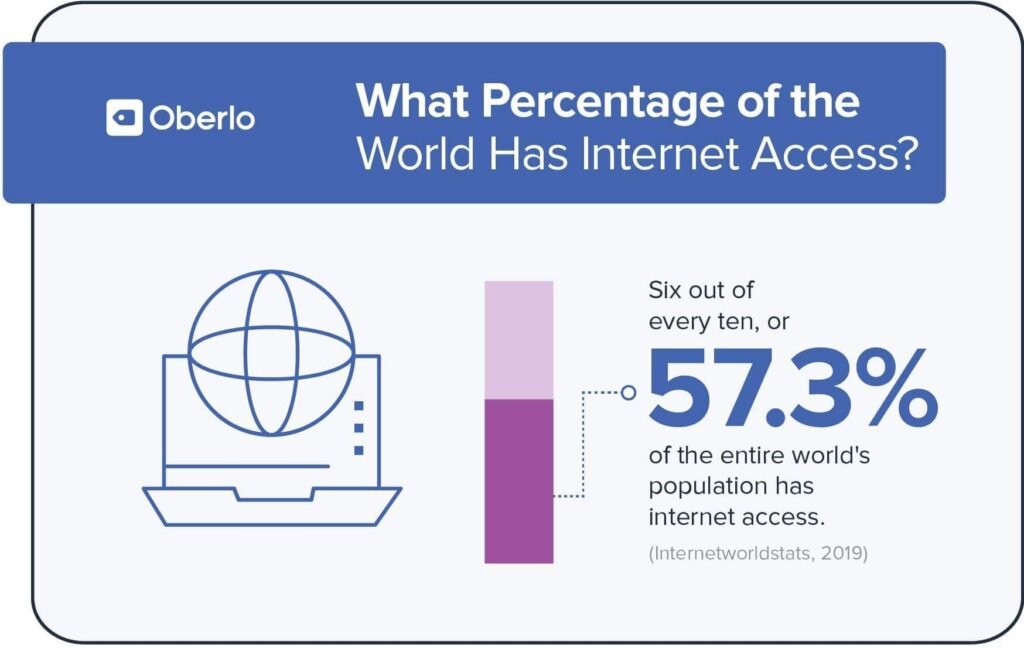“Am I good enough?”
“Am I skilled enough to take on this client?”
“Will they realize I’m fake eventually?”
We’ve all experienced it.
It doesn’t matter how good you get.
You will experience impostor syndrome at some point.
Many writers don’t even realize what it is or if they have it.
But it happens to the best of us. (Myself included.)
Here’s my take on overcoming impostor syndrome as a writer.
What is Impostor Syndrome?
Impostor syndrome was first identified by psychologists Suzanne Imes and Pauline Clance in 1978. They defined it as the feelings of self-doubt and fraud mainly experienced by high-achieving individuals.
Interesting, huh?
You’d think the more successful you become, the more confident you’d be.
Far from it sometimes.
This is especially the case if you’re young and successful.
You might think, “How did I get here?” or “Did I get lucky?”
You may believe that you aren’t as talented as you are and somehow fool others into thinking otherwise.
People who experience impostor syndrome tend to downplay their success.
However, 70% of people are expected to experience this phenomenon once at some point in their life.
Impostor Syndrome Symptoms
How do you know if you have impostor syndrome? These are some of the main symptoms:
- Self-doubt: not believing that you are capable of achieving certain goals, taking on specific projects, or questioning your skill.
- Disappointment: it’s common to feel disappointed in one’s performance and not meeting goals or deadlines.
- Sabotage: some people will subconsciously sabotage their own success.
- External locus of control: attributing success and other events to external factors other than oneself.
- Inability to assess competence: impostor syndrome typically creates an ability to really gauge how good or bad one is at particular skills and areas of expertise. It may be over or under-exaggerated.
Some writers use it to fuel motivation and crush their goals. Energy never disappears, it moves.
Unfortunately, this comes with anxiety from working too hard, and overpreparing, and sets up a vicious cycle. You connect overworking with achievement.
Impostor syndrome can also create perfectionism, self-critique, seeing assistance as a weakness, and setting unrealistic goals.
Related reading: how to overcome writer’s block.
Do Writers Get Imposter Syndrome?
Absolutely. I believe freelancers and writers are very susceptible to having imposter syndrome.
When you spend your days pouring your heart and soul onto the page, it’s easy to start feeling like a fraud – like you’re just one bad review or rejected pitch away from being exposed as a total imposter.
But here’s the thing: imposter syndrome doesn’t discriminate. Whether you’re a seasoned pro with a dozen clients under your belt or a newbie just dipping your toes into the world of writing, imposter syndrome can strike when you least expect it.
What Are The 4 P’s of Imposter Syndrome?
Perfectionism, Paralysis, People-Pleasing, and Procrastination. Author Clare Jose, the brilliant mind behind ‘Ditching Imposter Syndrome’, identifies these four sneaky saboteurs that can wreak havoc on your confidence and creativity.
- Perfectionism tells you that nothing you do will ever be good enough, so why bother trying?
- Paralysis is that gut-wrenching fear of failure that leaves you stuck in your tracks, unable to move forward.
- People-Pleasing is the relentless urge to please everyone else at the expense of your own well-being and sanity.
- And last but not least, Procrastination is the sneaky little voice in your head that says, “Eh, I’ll do it tomorrow,” until tomorrow becomes next week, next month, next year.
Recognizing these in yourself is one of the first steps in solving imposter syndrome.
How To Overcome Impostor Syndrome
But enough with the bad! Let’s talk about how to get rid of this beast once and for all.
The Proof Is in the Pudding
I can’t lie.
I’ve gotten impostor syndrome before.
Do you know how I instantly dispel it?
By looking at my portfolio.
Huge brands and publications wouldn’t have taken me on—let alone published my content—if it didn’t fit their expectations.
Clearly, I am skilled enough to write for these businesses, produce results, and be trusted by them.
The proof is in the pudding.
Look at the work you’ve done. Look at the results you’ve generated for clients.
Review it as often as possible to keep your head right and confidence high.
Keep Sharpening the Axe
What’s one of the main symptoms of impostor syndrome?
Thinking you’re not good enough.
Well, if that’s the case, get better! (whether it’s true or not.)
You’re a writer. You should be writing every day or several times per day.
This will increase your skill and naturally, your confidence will follow.
Don’t stop there.
Read, read, read.
Go pick up The Elements of Style by William Strunk Jr. I know you read it five times already. Give it another go.
Read David Ogilvy’s books. You do know who David Ogilvy is, right?
Pick up The Copywriter’s Handbook by Robert Bly, Scientific Advertising by Claude Hopkins, and The Boron Letters by Gary Halbert.
Read every day even if it’s ten minutes. (Check out my copywriting process article.)
Practice what you learn and you will tenfold your skill. Take that impostor syndrome!
3. You’re Not Alone (Not Even Close!)
You’re not a freak. You’re not an outlier.
A big majority of people have felt what you’re feeling.
Take solace in knowing that you’re experiencing a normal emotion. Not weird. Not crazy.
Frankly, it’s expected and a sign that you’re doing well. High-achieving people get this and it means that you’re making big moves. You just have to change your perspective.
Reflect back on all of the progress you’ve made.
Remember when you were just beginning?
You’ve probably made incredible improvements since then.
Change your perspective, change your life.
4. Talk to Other Writers
Social medicine.
It’s a real thing.
Don’t believe me? My friend laughed when I told him it too.
It’s been proven that spending time with assuring and positive people boosts happiness.
A study performed by Harvard Medical Study and the University of California looked at the happiness of 5,000 people over the span of 20 years.
Researchers discovered that when one person becomes happy, a network effect of up to three degrees could be measured.
That’s right… happiness creates a chain reaction. It makes your friends happier, and their friends, and their friends, and so forth. The happiness effect can last up to one year as well.
So here’s my advice: band together.
Find other writers in your area.
Join a Meetup group. Search for a keyword like “writing” and adjust the location to your city.

Click a group and check if they have upcoming events.

Attend as many as possible.
I’d bet a pretty penny that you’re going to meet a lot of other entrepreneurs who also experience(d) impostor syndrome.
What did they feel?
How did they get past it?
You’ll hear interesting stories and insights that might click off a switch and get you in the right mindset.
5. Practice Gratitude
If you’re reading this, you’re alive!
That’s amazing.
You clearly have the internet. That means you’re a part of the 57.3% of the world’s population that has internet access.

…You have a smartphone, tablet, or computer.
…You have the money to enjoy those luxuries.
…And you’re trying to better yourself.
You get my point.
That’s a lot to be grateful for.
Let alone the writing work you have, the income you’ve generated, and the fact you get to do what you love every day.
See where I’m going with this?
Gratitude has been scientifically proven to improve happiness and well-being.
Write down a list of five to ten things you’re grateful for every day. Don’t miss a day.
Try using this free online journal Journey.Cloud. Sign up for a free account.
Start writing. Whatever comes to mind.
Your family, health, business, hobbies. You name it.

Write about everything that brings you joy and happiness. Review it regularly. This will keep you in a more positive mindset and pushes impostor syndrome to the backburner.
6. Your Business Problems Are Personal Problems
I attend a local mastermind including some of my best friends.
One night we brought up the topic of something game-changing…
Your business problems are your personal problems manifesting in your business.
Let me explain.
Imagine someone is feeling really disorganized. No systems. No automation.
It’s creating a lot of havoc and panic in their company.
There’s a solid chance that they are disorganized in general and outside of the business.
See what I mean?
In the case of impostor syndrome, I’d audit your confidence and self-esteem. I’m serious.
I wouldn’t be surprised if through meditation and mindfulness practices you could significantly enhance these aspects about yourself and that would translate into business.
I’ve been really enjoying Wim Hof lately. He preaches breathing meditation, cold showers, and yoga. Great stuff.
Improving your health will make you more focused, happy, confident, and alert.
It also gives you alone time to think about yourself and where you could progress.
7. Follow The Buddhists
Okay. I’m going to get a little woo–woo but keep with me. Be open-minded and I think you’ll greatly benefit from it.
I’m very spiritual. I mostly practice Buddhism.
One of the main concepts of Buddhism is the idea of the self or the ego. Think of it as your identity. (“Identity” comes from the Latin phrase “to make the same.”
Your body, name, story. Everything that you think is you. More importantly your thoughts and feelings.
Here’s a fun exercise: learn to do basic meditation.
Sit down and focus on the breath moving in and out of the body. Focus on the sound of the breath moving in and out of your nose. Be alert of the diaphragm rising up and down. Every time a thought or feeling arises, gently return back to the breath.
What is that awareness that’s watching the thoughts? Is that you?
How is it that you are able to observe the thought or feeling as a separate entity? This is called rising above thought.
It is also disidentification: no longer identifying with the thoughts of being an impostor. You simply observe them. Don’t give them any extra power or attention. Acknowledge them and let it pass.
It’s not easy and you won’t get it on the first try. It takes time. But damn is it a superpower!
Final Thoughts on Impostor Syndrome as a Writer
We’ve all been there.
Imposter syndrome is very normal.
You don’t give yourself enough credit, feel like you’re fooling others, and doubt your abilities.
The first thing I recommend is reflecting on your work and progress. You wouldn’t have written for websites, businesses, and other publications if they didn’t think you were capable.
Keep refining your writing skills as well. Write every day and read as much as possible.
Join a writers club and begin connecting with like-minded people. It’s reassuring to have a support network especially when they can help you overcome challenges.
Gratitude is another way to circumvent impostor syndrome. Reflect on what you’re grateful for—in and outside of writing—to keep your mindset positive.
Mindfulness and meditation practices are also extremely beneficial for learning to stay present and not get trapped in your daily thoughts.
Get my free courses if you’re interested in becoming a better writer.














